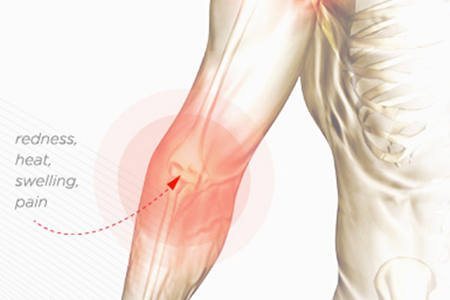
In its etymology, inflammation is derived from setting alight. It’s essentially a defensive response to infection, disease, or injury that is meant to reject the cause of cell injury, and to start the body’s road to repair. However inflammation can be painful and debilitating, and what more can be alleviated by taking some simple steps at home.
Contents
What causes inflammation?
There are different types of inflammation and also a variety of causes which have led to the condition of inflammation. These include:
- Burns
- Food allergies
- Foreign bodies, including splinters, dirt and debris
- Infections
- Chemical irritants
- Frostbite
- Toxins
- Physical injury
- Immune responses
- Stress
- Trauma
- Alcohol
Many people live with chronic inflammation for many years and feast on a mélange of medications to help assuage symptoms. It can be a symptom of almost any of the major diseases playing a role in type 2 diabetes, autoimmune diseases, and heart disease, cancer and stroke. Research continually points to the link between inflammation and degenerative brain disorders, including Alzheimer’s and dementia.
Ways to ease inflammation
There are several important foods to include in any anti-inflammation diet, which we presented to you previously. In addition to eating these foods, there are several ways in which a holistic approach can ease the inflammation and give your body more energy.
Drink Tea
In the UK, they believe a cup of tea can resolve anything. But actually, if you choose carefully, tea can be a powerful anti-inflammatory. Packed with potent antioxidants, green tea has been proven to quell inflammation. Lab tests conducted on rats at the Beltsville Human Nutrition Research Center presented results of inflammatory tumors decreasing and an increase in tristetraprolin; an anti-inflammatory protein.
Ommmm
Within the practise of yoga, people are trained to focus on breathing and mindfulness: being present in the moment. Studies such as the one conducted by American Journal of Clinical Oncology suggest that sustained yoga practise over time can lead to enhanced vitality and ease inflammation in sufferers.
Sleep More
Those who are sleeping for less than 6 hours a night expose themselves to susceptibility to inflammation. During sleep, your body has the chance to recuperate and repair, and those who are not getting enough sleep deprive the body from this vital activity.
Massage
With the additional bonus of being an incredibly relaxing and tactile treat, massage helps to stimulate lymphatic drainage and as such encourages inflammation to calm down. Massage lowers levels of inflammatory hormones, whilst also producing anti-stress hormones. With its added relaxation properties, massage can be an all-round cure for inflammatory health issues.
Limit Stress
Stress increases your blood pressure and heart rate; resulting in making blood vessels work harder. As such, if you’re prone to stress and anxiety, you could well be exacerbating inflammation. Unfortunately, this extends to affecting anxious people more than calm people. So for example, if you are quick to experience anxiety emotions, you’ll likely be someone who displays a greater increase in circulating interleukin-6 during times of stress, compared with people who deal with stress well. Whether it involves reducing stressful tasks, or meditating to find ways to cope, eliminating stress will reduce inflammation.
Exercise more
With the by-product of weight loss, exercise is a great way to lower inflammation. Working out opens up the vessels within the body, allowing for a freer flow of blood; which can lower inflammation. It need not be highly strenuous cardio, which can be the last thing you want when suffering from inflammation. Exercising at just 60 to 80 % of your maximum heart rate lowers levels of the key inflammation marker; C-Reactive Protein (CRP). A brisk walk that still enables small talk or some light yoga moves, are just enough to have a reductive impact on CRP.
You might also be interested to learn the list of anti-inflammatory foods.
